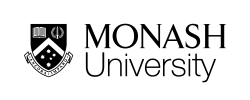LATEST NEWS

The Healthy Brain Project is Closing Down
After eight years, the time has arrived for the Healthy Brain Project to come to an end. It certainly is the end of an era. We would first like to thank all our participants for your hard work and dedication over the years. The Healthy Brain Project was the first study of our research program, led by Associate Professor Yen Ying Lim. Results from the Healthy Brain Project have helped us advance understanding of the many different factors that may influence aging, cognition and dementia risk in midlife and have enabled us to obtain additional funding to further our understanding of Alzheimer’s disease. Thank you for coming on this journey with us, for being so engaged and generous with your time and efforts, and for joining us in this fight against dementia.
Page 1 of 5

What Happens Next
From the 15th of November 2024, Healthy Brain Project accounts will be restricted. This means that you will no longer be able to complete any surveys or memory and thinking tests and you will no longer receive emails to complete your yearly assessments. You will, however, still be able to log into your account for a limited amount of time. Once we have wrapped up the Healthy Brain Project, our team will prepare a final feedback report for each of you based on your most recent assessment. As these reports are personalised, they take our team some time to prepare so you may expect to receive your report in February 2025. Once the reports are uploaded to your Healthy Brain Project accounts, we will send an email to let you know. You will then have three months to access and download your report from your account until your account is deactivated. If you are not able to download your report within that time or have any questions, please email us at hydralab@monash.edu.
Page 2 of 5

Introducing the Healthy Brain Hub
We are very excited to introduce our new initiative, the Healthy Brain Hub, funded by the Medical Research Future Fund. We hope to take all the lessons we learned about conducting memory testing online from the Healthy Brain Project, and apply them to the real world. The Healthy Brain Hub aims to determine whether conducting brain health assessments online, either self-administered like in the Healthy Brain Project or via telehealth, can help identify people in the community who may be experiencing memory and thinking difficulties.
Page 3 of 5

Introducing the Healthy Brain Hub
If you sign up to the Healthy Brain Hub, you and your GP will receive a report with outcomes of your brain health assessment, including the results of any memory and thinking testing that we do. We are interested in whether the information obtained through these brain health assessments are useful and helpful to you and your doctor, in informing ongoing care. It is important to note, however, that we will not be providing you with a diagnosis of dementia, mild cognitive impairment, or any other cognitive or memory-related condition. Instead, we will be providing some information about your brain health that might help your doctor rule in or rule out some of these conditions. If you are interested in joining the Healthy Brain Hub, please fill in this form or email hydralab@monash.edu.
Page 4 of 5

Thank you
Thank you again for your participation in the Healthy Brain Project. We hope you’ve enjoyed your time with us as much as we’ve enjoyed having you. We hope you will continue on with us at the Healthy Brain Hub, but if not, thank you for your trust in our team over these past few years. If you have any questions, please contact us at hydralab@monash.edu.
Page 5 of 5
(swipe left to read more news items)





